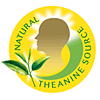New study suggests tea is the solution to Australians' "Mind Over-Load"

Just two to three cups a day may promote a relaxed, yet alert state of mind1
Are tea drinkers more likely than non tea drinkers to cope with the increased pressures of modern day life? They just may have an advantage when juggling hectic lives.
Scientists at Oxford University have discovered that a natural component in tea called L-theanine1 could be responsible for promoting a relaxed, yet alert state of mind.
This is a state of mind that many Australians - including office workers2, stay at home mums3, and manual labourers4, report can be difficult to achieve due to their hectic lifestyles. 73% of Australian mothers say that they can identify with "Mind Over-Load" a term which describes the pressures of hectic day to day routines and activities.
New consumer research revealed that almost three out of four women3 feel that they are living a "Mind Over-Load" lifestyle - always "on the go" and constantly rushing from one pressured situation to another. They say they are unable to relax due to their busy, stressed and often overwhelming lives. L-theanine - which is a natural amino acid - could provide the solution a relaxed, yet alert state of mind. 
The extent of "Mind Over-Load" in Australia has been uncovered as part of Lipton's consumer research. It suggests that while many Australians are able to cope with increased pressures in their lives, they rarely feel that they have clarity of mind as increased stresses overtake their headspace.
Among the list of concerns that rarely leave our minds - whether immediate considerations or planning for the future - are budgeting (particularly meeting mortgage or rent payments), placing children in childcare and schools, long work hours, planning for retirement, and transport costs (whether it be airline flights or petrol for the car).
L-theanine research conducted by Oxford University1 - builds on findings by Japanese scientists, suggesting that L-theanine is responsible for promoting a feeling of relaxation, yet maintaining an alert mind. Research conducted at 50mg of L-theanine - the amount found in two to three cups of tea -naturally stimulates specific brain activity, known as alpha waves1. Alpha brain waves are associated with a feeling of a relaxed, yet alert mental state1.
 Biopsychologist and Lead Scientist at the Beverage Global Technology Centre in the UK, Dr Gail Owen says: "The exciting new understanding of L-theanine in tea shows what tea drinkers have instinctively known; that tea can revive, relax and refresh all at the same time."
Biopsychologist and Lead Scientist at the Beverage Global Technology Centre in the UK, Dr Gail Owen says: "The exciting new understanding of L-theanine in tea shows what tea drinkers have instinctively known; that tea can revive, relax and refresh all at the same time."
"The consumer research showed that Mind Over-Load is a feeling that just about everyone can identify with. We are bombarded by an increase of choices which means we have to spend time making sure that we make the right decision at every turn." Dr. Gail Owen says.
"The understanding of L-theanine further reinforces the importance of how what we drink and eat impacts on our mental performance. All you need is the amount of L-theanine you would find in two to three cups of Lipton tea."
One of Australia's leading nutritionists, self-confessed tea lover Catherine Saxelby says that the discovery of L-theanine is just another great benefit to drinking tea.
"Australians don't have to suffer from Mind Over-Load. We work hard to be 'good' at what we do - whether it be a 'good' parent, employee, employer or grandparent. Now we have exciting research to prove what many have known for some time - which is that a cup of tea can help us to do this with a relaxed yet alert mind."
Further benefits of tea include that:
- It is a great source of flavonoid antioxidants4,5. Antioxidants may help us to maintain healthy cells and tissues by reinforcing our body's natural defence system.
- Provides a great way to help keep your body refreshed and quench your thirst.
- When drunk on its own (without milk or sugar) tea contains virtually no kilojoules or calories.
- There is a link between regular tea consumption and heart health - drinking tea may help with your heart health.
Dr Janet Bryan, psychologist at the University of South Australia comments: "Mental clarity is an exciting area of research and these promising studies have uncovered some exciting facts about the role of L-theanine in tea. While the findings are complex and need further research - particularly into more complex cognitive tasks - early indications are very positive."
For further information, go to www.lipton.com.au
1Nobre AC, 2005, Effects of theanine (50mg) on alpha activity in a naturalistic setting, Department of Experimental Psychology, Oxford University
2Talent2, Concentration at Work, April/ May 2006
3Newspoll Market Research, Sydney, April/May 2006
4Lakenbrink C et al, J Agric Food Chem. 2000;482848-2852
5Astill C, et al. J Agric Food Chem; 2001;49(1)5340-7

MORE



